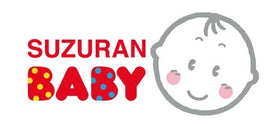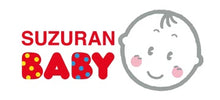Protect Yourself & Your Family from the Invisible Enemy
Many common infections can spread by airborne transmission. These viruses can spread when an infected person coughs, sneezes, or talks, spewing nasal and throat secretions into the air.
Here's how to protect yourself and your child during an outbreak.
1. Wash your hands frequently
Washing your hands with soap and water kills the virus if it is on your hands.
Can’t find soap and water when you’re outside? Clean eyes, mouth, face and hands with our antibacterial Wet Cleaning Cotton to wipe away germs and bacteria.
2. Use a mask if you're feeling unwell
Covering your mouth and nose when coughing and sneezing prevent the spread of germ and viruses. If you sneeze or cough into your hands, you may contaminate objects or people that you touch.
If you do not have a mask, use a tissue or cough or sneeze into your elbow rather than your hands. Then, wash your hands up to the elbow with soap and water or wipe them with Wet Cleaning Cotton. You may also bring a few handkerchiefs with you so you can cover your cough and sneeze.
3. Avoid touching eyes, nose and mouth
Your hands touch many surfaces which can be contaminated with germs, bacteria and virus. If you touch your eyes, nose or mouth with your contaminated hands, you can transfer the virus from the surface to yourself.
Always wipe your eyes, nose and mouth with Wet Cleaning Cotton, or clean these areas with Gauze Handkerchief.
4. Bring Wet Cleaning Cotton along with you and use it to clean eyes, nose, mouth, face and hands
Suzuran Baby Wet Cleaning Cotton is individually packaged in alumina packs for hygiene purpose. Hence, it's very convenient for you to pack it in your bag and bring it with you whenever you go. Always clean your eyes, nose, mouth, face and hands with this to wipe away dirt, germs and bacteria.
Our Wet Cleaning Cotton is antibacterial and sterilized under high pressure, safe to be used for all including newborns and babies with sensitive skin.
5. Avoid eating raw or undercooked animal products
Handle raw meat, milk or animal organs with care, to avoid cross-contamination with uncooked foods, as per good food safety practices.
6. Seek medical care early if you have mild respiratory symptoms
Whenever you have fever, cough and difficulty breathing it’s important to seek medical attention promptly as this may be due to a respiratory infection or other serious condition. Respiratory symptoms with fever can have a range of causes.
If you have mild respiratory symptoms, carefully practice basic respiratory and hand hygiene and stay home until you are recovered if possible.
Prevention is better than cure. Practicing good hygiene can prevent you and your family from the invisible enemy.




